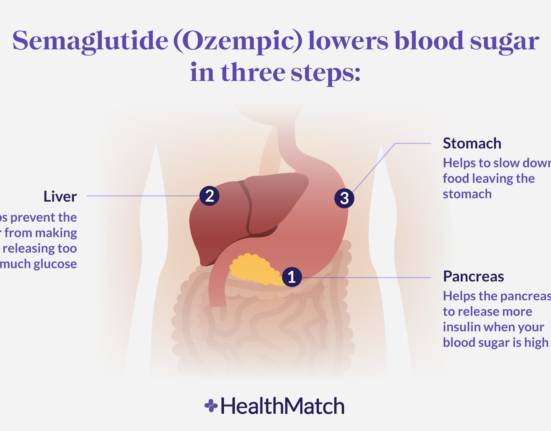Are heavy periods affecting your daily life? Sometimes it is common to have heavy periods. Yes, in certain cases, you are likely to experience heavy flow periods. Some of these cases include-
- Getting periods for the first time
- After pregnancy (giving birth)
- During menopause (permanent stopping of periods)
Fortunately, a lot of products are available these days in the market to help you deal with the heavy flow easily. For instance, you can easily find the best quality sanitary pads for heavy flow anywhere in the market to prevent the chances of discomfort and leakage during those days. However, if you are facing unusually long or heavy periods, there are chances that you may be suffering from a medical condition known as menorrhagia. In this blog, we will talk about heavy periods and their possible causes.
Menorrhagia-A medical condition responsible for heavy flow
Menorrhagia is the medical term for menstrual periods with abnormally heavy or lengthy bleeding days. In this condition, the flow is so heavy that you may need to change your pad more frequently (every 2 to 3 hours) than usual.
Heavy flow is generally accompanied by symptoms like severe cramping, weakness, and fatigue, preventing you from performing your daily activities. If you are going through such a situation, it is advisable to consult your doctor immediately to get the right treatment.
Reasons for your heavy periods and how to identify menorrhagia?
Experiencing a heavy flow sometimes during periods is quite common though the intensity may vary. There are many women out there who experience heavy flow and cramps during their periods. There may not always be an underlying cause for heavy bleeding. The hormones like progesterone and estrogen also play an important role in determining the flow of your periods. The flow may be heavier on the first day of your periods and then it gets lighter on the other days. The reasons for heavy bleeding can be many such as:
- It may be the result of certain problems like endometriosis or fibroids.
- Physical conditions that affect the uterus like fibroids and polyps may also cause a heavy bleeding period.
- Changes in hormone levels due to a change in diet, extreme weight gain/loss, a rigorous exercise regime, or even stress can lead to heavy bleeding periods.
- If you are approaching menopause, you may experience heavy bleeding periods.
- Consuming certain birth control pills may also cause an abnormal or heavy period.
- Heavy period bleeding can also be the result of some medicines and treatments like anticoagulant medicines and chemotherapy medicines.
- A significant change in routine can also trigger abnormal bleeding.
How do identify heavy bleeding periods?
It is important to note that there is no idyllic level of menstrual bleeding. The intensity of periods varies from women to women. It may be difficult for you to distinguish between a normal and a heavy bleeding period. So, how to know if you are dealing with menorrhagia? Well, if you need to change your pads every couple of hours and/or your menstrual cycle lasts for more than seven days, you may be dealing with menorrhagia.
On a universal level, most women lose less than 80ml of blood during their period. According to this level, if a woman loses 80ml or more blood during each period, it can be considered a heavy bleeding period. Besides, if periods last for more than 7 days, this is also an indication of heavy bleeding.
Symptoms of heavy periods
Some of the key symptoms of heavy periods or menorrhagia include:
- Heavy and/or longer (more than a week) menstrual blood flow than usual
- Need to change sanitary pads every hour or two for several consecutive hours
- Need double sanitary protection to control your blood flow
- Need to wake up during the night to change sanitary pads
- Frequent abnormal blood clots that are larger than a quarter in size
- Intense cramps
- Having symptoms of anemia like fatigue, tiredness, weakness, and out of breath
- Inability to perform daily activities
When to consult a doctor?
If you notice any of the above-mentioned signs of heavy bleeding, you must talk about it with your doctor. Irregular vaginal bleeding, bleeding between periods, or any vaginal bleeding after menopause are all signs of worry. Make sure to discuss all your symptoms, period dates, changing patterns, and other relevant things with your doctor so that he/she can provide the right solution for your problem.
How to treat menorrhagia or heavy periods?
When you consult a doctor, based on your condition, your doctor may be able to suggest the best possible treatment. Some of the common methods used to treat heavy periods include:
- Birth control pills: Birth control pills suggested by a doctor can help to alter the balance of hormones in your body. This further helps in preventing heavy periods. Getting an IUD (Intrauterine Device) can also help to lighten your periods.
- Medications: Certain medications help in reducing the flow of your heavy periods. These are only taken when you have periods. Also, never take any kind of medication without the prescription of your doctor.
- Surgery: If you are diagnosed with polyps or fibroids, your doctor may advise you for surgery to shrink or remove them completely. This may help to stop the heavy bleeding.
- Removal of uterus lining: Using certain procedures like Dilation and Curettage (D&C), your doctor will remove the outermost layer of the lining of your uterus. This may help to prevent the chances of heavy bleeding.
- Hysterectomy: In severe cases, your doctor may suggest a hysterectomy treatment option. It is a surgery that involves the removal of the uterus. After the surgery, you won’t get your periods anymore.
- Other procedures: Other procedures like endometrial ablation and endometrial resection which involve permanent removal or destruction of the lining of the uterus. After these procedures, some women experience lighter periods and some may have no periods afterward.
Conclusion:
Heavy periods can badly affect your daily routine. It can also lead to various other issues like tiredness, fatigue, weakness, etc. For normal heavy periods that stay only for the first of two days of your periods, you must use the best quality sanitary pads for heavy flow, and for the rest of the days, you can go for regular sanitary napkins. However, if you need to change your pads every 2 to 3 hours and experience longer periods (more than a week), see your doctor immediately as there may be an underlying issue that is causing heavy bleeding periods. Fortunately, various treatment options are available to control and prevent heavy flow periods. You just need to keep an eye on your period flow. If something is unusual, contacting your doctor will help you out in solving the issue.








33 Comments